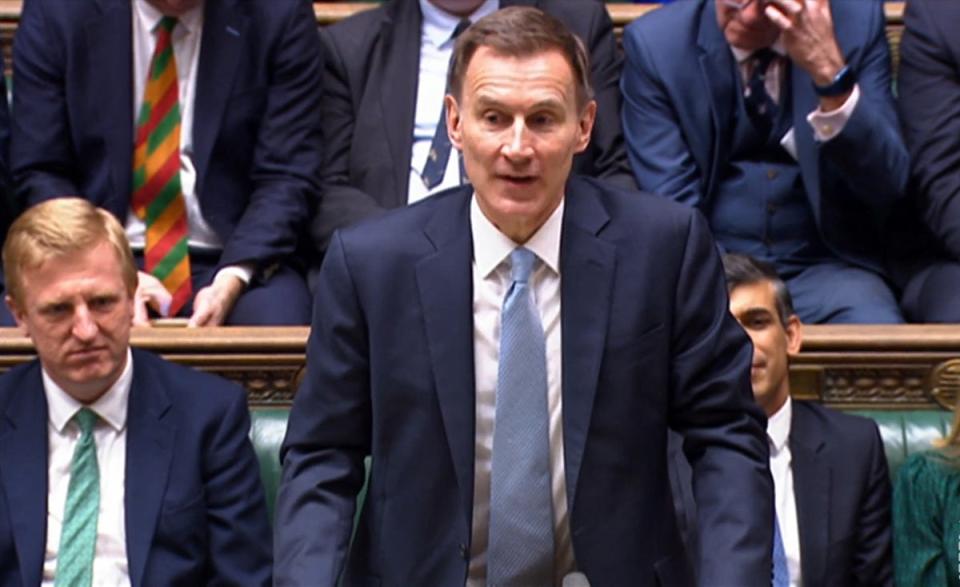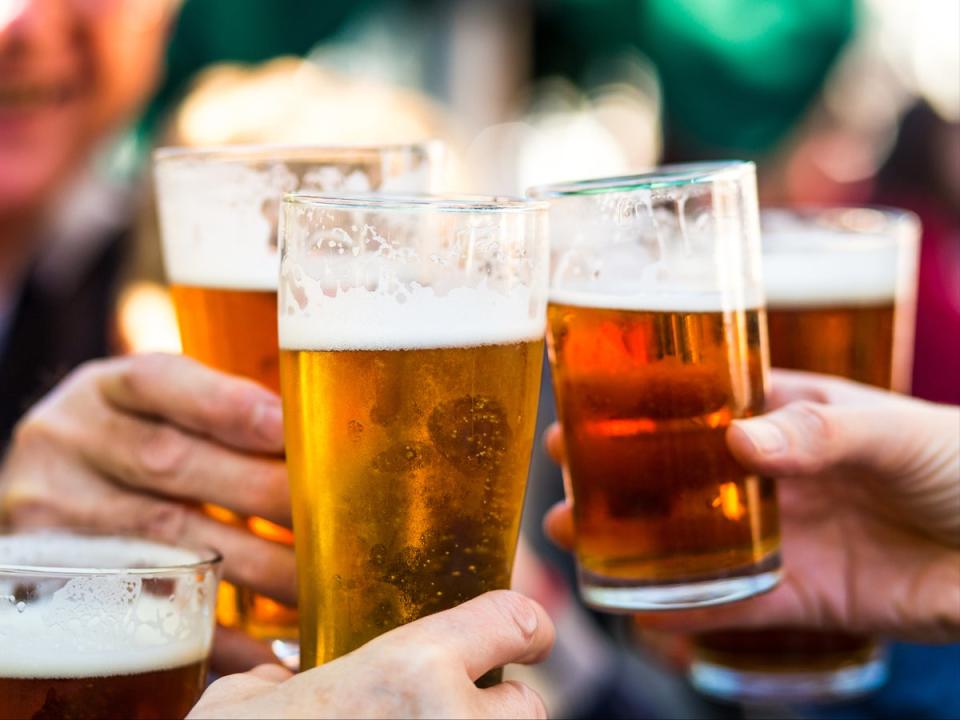Alcohol duty freeze extended by Jeremy Hunt in Budget victory for thousands of struggling pubs
Jeremy Hunt announced a freeze on alcohol duty in his spring Budget in a win for pubs and drinkers struggling with the cost of living squeeze.
The chancellor said he was extending the freeze, benefitting 38,000 pubs across the UK, for a further year after keeping the duty unchanged in his Autumn Statement.
Traditionally, alcohol duty rates rise annually in line with inflation but chancellors have, over the past decade, opted to freeze it.
Mr Hunt told the Commons on Wednesday: “In the Autumn Statement I froze alcohol duty until August of this year. Without any action today, it would have been due to rise by 3 per cent.”
He said he had listened to representations from MPs about the tax, adding: “So today I have decided to extend the alcohol duty freeze until February 2025.
“This benefits 38,000 pubs all across the UK – and on top of the £13,000 saving a typical pub will get from the 75 per cent business rates discount I announced in the autumn.
“We value our hospitality industry and we are backing the great British pub.”

Many pubs have struggled to recover from lost business during the Covid pandemic and have been hammered by rising costs amid the cost of living.
The rising price of a pint has put many punters off going out for a drink and thousands of pubs have been forced to close as a result.
Industry data published earlier this year showed thousands have been forced to pull down the shutters, with more than 10 pub or restaurant closures every day.
The number of licensed premises in Britain fell by 3.6 per cent from 103,682 to 99,916 in the year to September.
It marked the first time the total has dropped below 100,000, according to figures from AlixPartners and CGA/NielsenIQ published in January.
Rising energy bills, rent, and food bills have also put huge pressure on the industry.
The alcohol industry has welcomed the extension of the alcohol duty freeze as “some much-needed certainty and stability” for the industry and consumers alike.
Stephen Russell, founder of Copper Rivet Distillery and spokesman for the UK Spirits Alliance, said: “The chancellor has raised the spirits of distillers, hospitality businesses and consumers alike.
“Maintaining the freeze announced in the autumn is good news for spirits drinkers, good news for pubs and bars and the wider economy, and good news for the Treasury as it will enhance revenue for the Exchequer.
“Spirits continue to be the highest taxed alcohol category in the UK – most people are shocked to hear that 80 per cent of a bottle of gin is tax. We have the highest spirits duty rate among G7 nations, despite being a national success story.
“We look forward to engaging with HM Treasury on how we improve this.”

Stephen Russell, founder of Copper Rivet Distillery and spokesman for the UK Spirits Alliance, said: “The chancellor has raised the spirits of distillers, hospitality businesses and consumers alike.
“Maintaining the freeze announced in the autumn is good news for spirits drinkers, good news for pubs and bars and the wider economy, and good news for the Treasury as it will enhance revenue for the Exchequer.
“Spirits continue to be the highest taxed alcohol category in the UK – most people are shocked to hear that 80 per cent of a bottle of gin is tax. We have the highest spirits duty rate among G7 nations, despite being a national success story.
“We look forward to engaging with HM Treasury on how we improve this.”
However, health campaigners condemned the “appalling” decision at a time of “record high” alcohol-related deaths.
Professor Sir Ian Gilmore, chairman of the Alcohol Health Alliance UK, said: “Increasing alcohol duty is one of the most effective ways to increase Treasury revenue, reduce alcohol harm and protect the NHS.
“It is appalling that once again the chancellor has passed on the opportunity to boost government spending and improve public health, in favour of a tax break for the multibillion-pound alcohol industry.
“At a time when we are experiencing record-high alcohol deaths and public finances are under extreme pressure, increasing duty is fundamental in reducing the burden caused by alcohol.
“The tax cut afforded to the alcohol industry today is the result of lobbying from powerful multinational corporations. It further highlights the need for an automatic duty escalator to be reinstated to protect the decision from the influence of industry each year.”

 Yahoo News
Yahoo News 
